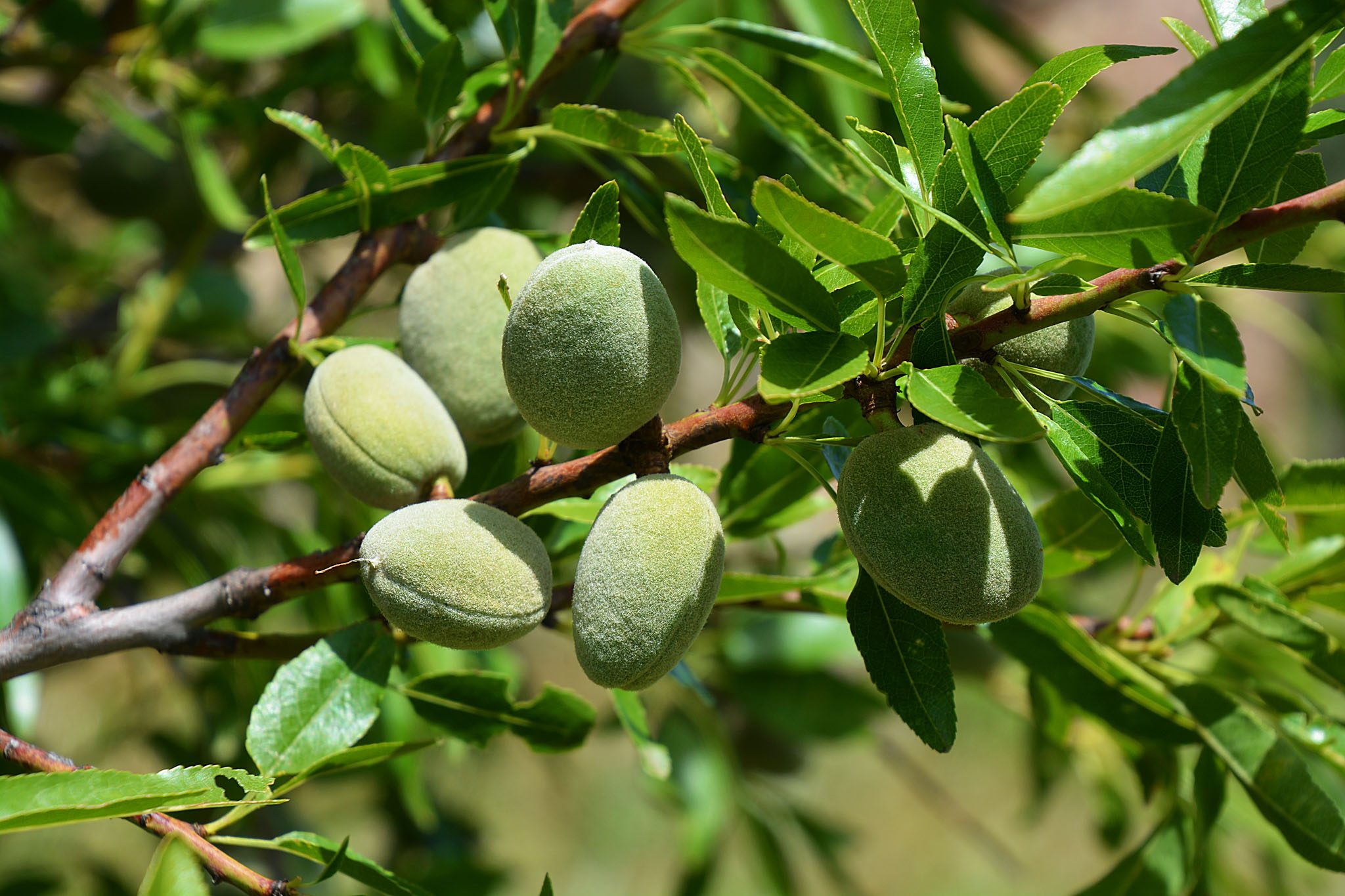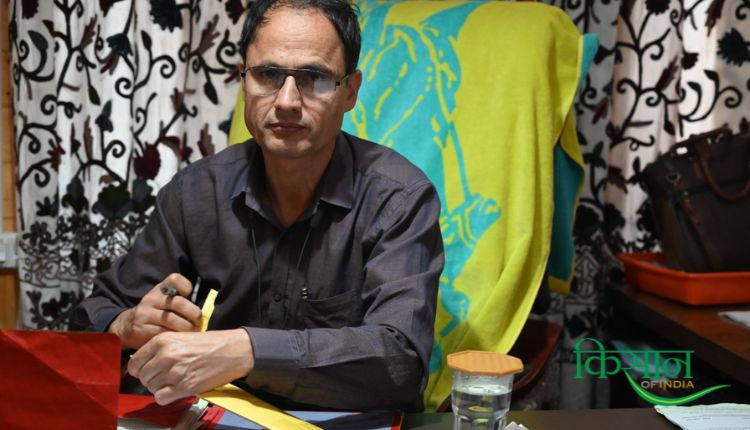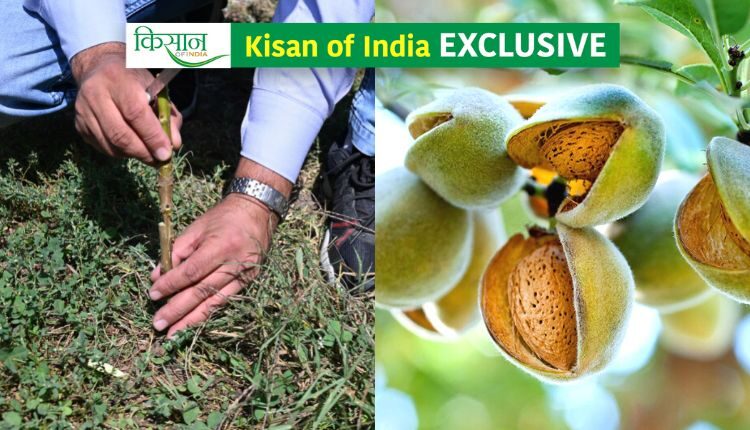Almond Farming: How Are High Density Almonds Made? Kashmir’s almond farmers will get relief
Emphasis is being given on high density Almond Farming
A new ray of hope is now visible for the almond farmers of Kashmir, who are facing severe crisis. The exercise has intensified to increase the area of almond plantations which has been declining since the nineties. Now such a plant of almond is being developed in Kashmir, which has the potential to bring a U-turn in the declining trend of almonds among the farmers. It is a high density almond variety, which may take two years to reach the farmers.
About 90 percent of India’s total production of 10 thousand tonnes of almonds is mainly in Pulwama and Budgam in Kashmir, but over three decades the farmers here have reduced interest in almonds. In the last three to four years, the farmers here are destroying their ancestral almond orchards and preferring to plant apples in them. The biggest reason behind their doing this is the continuously decreasing profit in growing almonds. They have good option of income in the form of apples. That is why they have removed almonds from their priority list. So far, the entire system of Jammu and Kashmir has been giving preference and strength to the production of apples over almonds, hence the disillusionment of the farmers with almonds and the association with apples.

Consumption of almonds increasing continuously
Now the consumption of almonds in India is increasing continuously and to meet this need, almonds are being imported in large quantities from other countries. In 2019, India bought almonds worth more than $62 million from the US alone. Almonds were also brought to India from some countries. The demand for almonds has also increased due to a general increase in population and a change in the trend of people eating fruits and especially dry fruits after the global epidemic of Covid-19 infection. Therefore, now everyone is realizing the importance of domestic almonds, which are more flavourful, aromatic and potent in food than the almonds imported from abroad. Despite this, the market for Indian almonds is decreasing as it is not able to attract traders and consumers as much as almonds from the Central California Valley of America due to lag in colour. Its kernel is long and attractive in colour.
Also Read: Natural farming reduced the cost and increased profit for this farmer of Andhra Pradesh
Almond trees grown in Kashmir are losing crop due to hereditary diseases and climate change due to global warming. The biggest problem is that in the season when the almond tree flowers, it rains and the temperature drops only in those days. So many flowers shed or wither. When the flower will drop, it is bound to reduce the yield of the crop. This trend is being seen continuously for the last few years. Not only this, one of the problems of the farmers is that if there is a good yield in one season, then next year there are very few almonds. Sometimes there is a gap of two years between a good harvest. Javed Ahmed, Chief Horticulture Officer, Pulwama, says that 90 percent of the old almond trees here are made from seedlings prepared by sowing seeds in a traditional way. Gradually, there was a hereditary decrease in them, so their ability to produce crops also decreased. The excessive use of chemical pesticides and fertilizers also damaged the fertility of the soil. The weather on it and the competition with foreign almonds in the market affected the income of almond farmers.

Emphasis is on cultivation of high density almonds
Now there is a need to make horticulture farmers aware about adopting modern methods of planting and caring for crops. It is being tried but it needs to be more effective. The officials themselves also believe so and new methods are being adopted in this direction. At the same time, in the plant grown from the seeds of domestic almonds, such plants are being made by grafting the pen of another type of almond tree, which has the properties of both indigenous and foreign almonds. This will prevent hereditary diseases. Mohammad Shafi Dar, an officer engaged in this work, said that the Horticulture Department also gives training to the farmers for grafting. In addition, Public Private Partnership is being promoted. Private nurseries are also coordinated for planting new almond seedlings and farmers are explained to buy saplings from them. The lack of political will has been a hindrance in this direction earlier, but in 2016 some initiatives were taken in this direction. Based on the same, work has started again in recent years, which has now started gaining momentum. The government has also encouraged investment in this work.
The farmers of Pulwama have the largest share in the almonds grown in Kashmir. This district produces more than 60 percent of the total 10,000 tonnes of almonds produced in India. Despite the bad conditions and the trend of cutting almond trees, Pulwama has produced 6468 tonnes of almonds in the financial year 2021-22. Chief Horticulture Officer here Javed Ahmed said that now the work is being done at a rapid pace to improve the quality of almonds. Like High Density Apple, a variety of High Density Badam is also being produced, which is suitable for the climatic and geographical conditions of Kashmir. By mixing the foreign variety with the domestic variety, such a variety of almond has been prepared, in which the flowering process will start a little later than before, that is, when the flower blooms, the weather will be favourable to maintain it. This means that the almond tree will flower only after the bad weather leaves. This will increase the yield of almonds on that tree. Ahmed says that scientific trials of this variety have been successful to a great extent and work is going on at the Central Institute of Temperate Horticulture (ICAR-Central Institute of Temperate Horticulture), Rangret, Srinagar. It will take some more time to reach this new type of plant to the farmers of Kashmir. It is expected that farmers will be able to get it in two years.
Contact us – If farmers want to share any valuable information or experiences related to farming, they can connect with us via phone or whatsapp at 9599273766 or you can write to us at “[email protected]”. Through Kisan of India, we will convey your message to the people, because we believe that if the farmers are advanced then the country is happy.
You can connect with Kisan of India on Facebook, Twitter, and Whatsapp and Subscribe to our YouTube channel.



